Are you looking for ways to live more sustainably? Green living can help you live cleaner, improve your health, protect the environment, and save money! From going green at home, to shopping and eating responsibly, here are 15 ways you can live more sustainably in the new year!
Grow Your Own Food
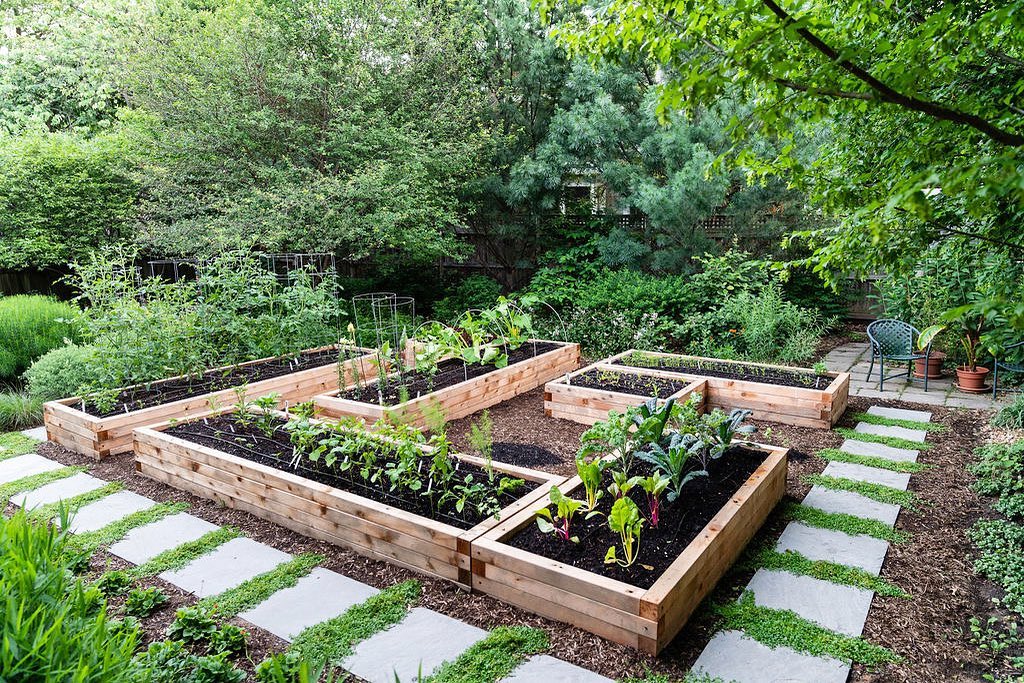
Photo via @loveandcarrots
Eat healthier and help reduce your carbon footprint by growing your own vegetable and herb garden! Creating your own source of food helps cut down on plastic and glass waste (commonly used in grocery food packaging), while helping eliminate carbon emission created by food transportation. Start with some easy foods to grow at home like lettuce, bell peppers, or tomatoes, and be sure to start canning vegetables to extend their shelf life. Once you get the hang of gardening, try growing a variety of healthy vegetables or see what kind of fruit trees can be grown near you!
Try Your Hand at Composting
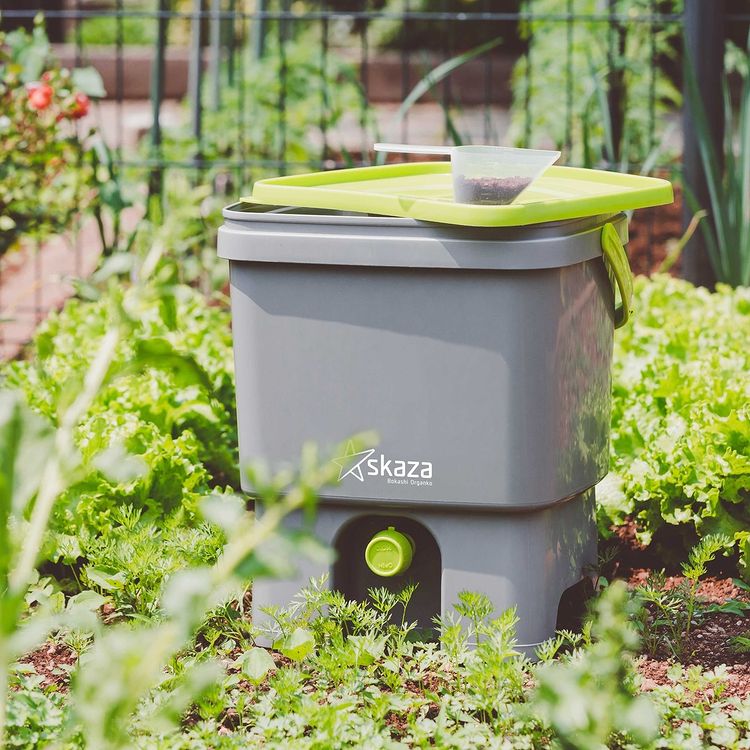
Photo by @allgreenuk
Instead of throwing away leftover food scraps, try composting to help create a sustainable cycle for growing your own food. Composting adds nutrients back into the soil to nourish your fruits and veggies. The best part about composting is that you can create a compost with just about any organic materials! Throw items like your potato skins, egg shells, fruit peels, old newspapers, and more in a compost to naturally decompose, instead of mixing them with non-biodegradable items headed for a junk yard.
Use Less, Save More
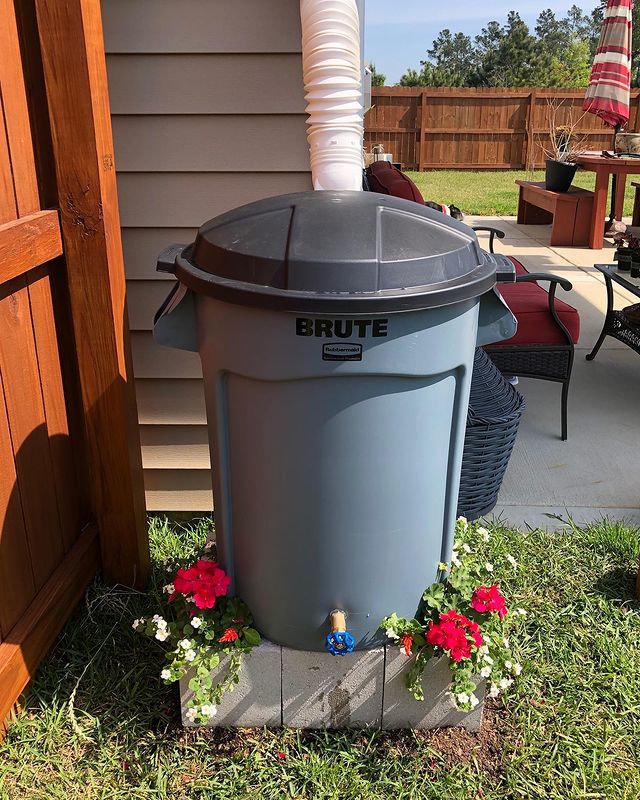
Photo by @yetanotherplantpage
One easy way to live more sustainably is to conserve resources so they can be used multiple times. Get an easy start to sustainable living by collecting rainwater for your plants. Have a garden? Build an irrigation system using water barrels or DIY a hydroponic system. Conserve water by taking shorter showers, or install a water-efficient shower head. Swap out paper towels for cloth towels, which you can wash and reuse instead of throw away after one use. Simply put, sustainable living means eliminating excess or wasteful habits by getting the most out of what you have!
Use Cold Water

Photo by @trishorndorffrealestate
Water heaters account for nearly 20% of a home’s average energy consumption, which is the second largest expense in most homes. Washing your laundry on cold can save money, extend the shape and vibrancy of your clothes, reduce microfiber pollution in the ocean, and cut up to 864 pounds of CO2 emissions a year. Showering cold isn’t just better for your skin and can boost your immune system and metabolism, but it can cut down energy consumption, too!
Ditch Single-Use Products

Photo by @downtownslo
Although convenient, single-use products are detrimental to the environment. Instead, use glass or multi-use plastic containers that can be washed and reused to store leftovers. Buy items in bulk to cut down on wasteful packaging. Shop at the grocery store with reusable cloth sacks instead of flimsy plastic bags. Cut down on plastic waste by opting for a reusable water bottle made from sustainable materials. If you must use singles-use products, be sure to look for items that use paper or environmentally cautious packaging.
Trim Your Carbon Footprint

Photo by @partyof4sometimes2
Common car emissions are toxic to human health, weaken the atmosphere, and is one of the biggest contributors to global warming. Even having an electric car requires a lot of electricity when charging at home. Cut down on vehicle emissions by taking public transportation or carpooling. Walk to nearby destinations or bike to work to save money and exercise your body.
Choose Sustainable Energy Sources
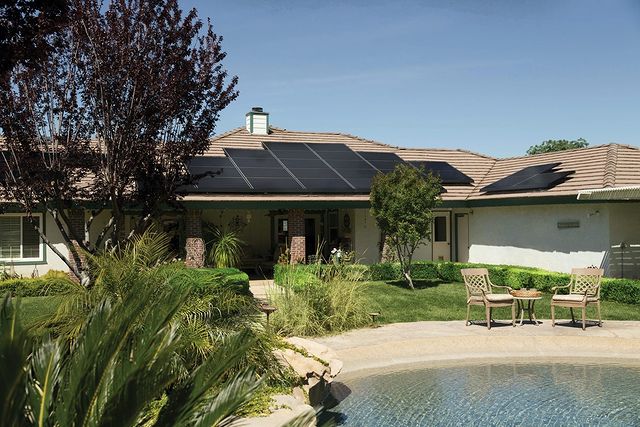
Photo by @projectbetterenergy
Renewable resources are a great way to save money on energy expenses. Consider having professionals install solar panels on your roof or in a yard to reduce your carbon footprint! Use heat pumps to collect heat from the air outside, even in cold temperatures, to save money on heating costs and cut down on energy consumptions. Research other renewable fuels like biofuel or biomass, which is made from wood or animal waste to create clean energy. Look into having a micro-wind turbine on your roof to microgenerate your own energy, though if you choose this option, you may have to talk to your electric company.
Start Unplugging Your Devices
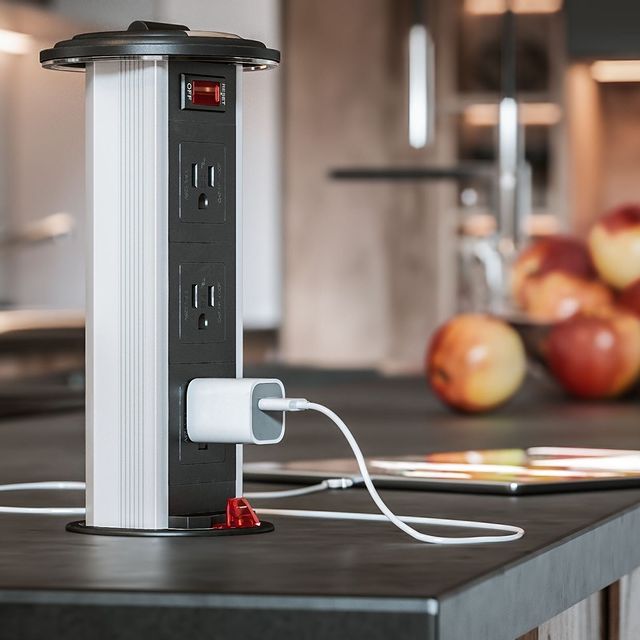
Photo by @dougmockett
While many electronics may have an off switch, pushing it doesn’t necessarily mean it completely shuts down. Most electronics often use energy while idle to download updates, run programs, and allow for quick start-up times. This also goes for electronics left on a charging station. Not only can overcharging your device ruin the device’s battery, but it can waste energy, too. Be mindful about your electronics use and try unplugging whenever you can. Another sustainable home solution is opting for extensions that can be turned off manually or smart outlets that regulate the time and amount of energy used by a given outlet.
Utilize Smart Features & Appliances

Photo by @daikin_air_intelligence
Home smart featureslike smart thermostats can make for excellent energy-efficient home improvementsbecausedyou can moderate energy usage andrdjust settings using your phoney, even remotely. Consider upgrading your lights to motion-activated bulbs to help save energy and money. Eco-friendly appliances like low-flow toilets and smart refrigerators require less energy and water than traditional appliances, so investing in big purchases like these can help you save resources. A good rule of thumb is to look for Energy Star-rated items in addition to the most sustainable appliances possible!
Opt for Eco-Friendly Cleaning Products

Photo by @aspenclean
Traditional cleaning products contain ingredients like alkylphenol ethoxylates, which are known to harm wildlife, take a while to breakdown as waste, and can even biodegrade into more hazardous chemicals. Instead,make y ur kitchen sustainable and oopt for eco-friendly cleaning products that use green ingredients, offer refills, or useplastic-free shipping to cut down on your environmental impact.. Mix your own green cleaner with water, rubbing alcohol, and baking soda for a more natural solution with no harmful chemicals when you do your regular cleaning routines.
Eat Local & Support Your Community
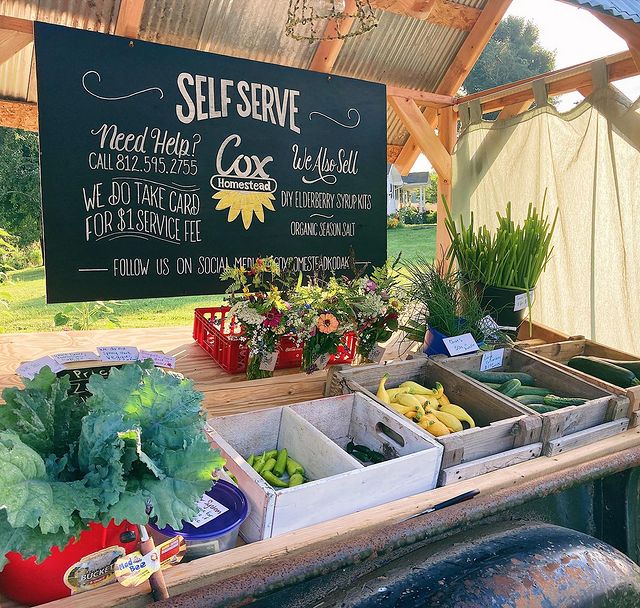
Photo by @coxhomestead_kodak
Did you know that eating local is not only often healthier for you, but for the environment as well? Locally sourced food doesn’t require as much transportation, which means less pollution from vehicle emissions and more support for local farmers. Unlike most commercial farms, food from local sources is often grown using healthier materials, and in turn is often better for you and doesn’t take such a toll on the environment. Look to buy fresh fruits, veggies, cheeses, and meats from farmers markets whenever you can, and be sure to identify which nearby restaurants use locally sourced food.
Sell & Donate Old Items
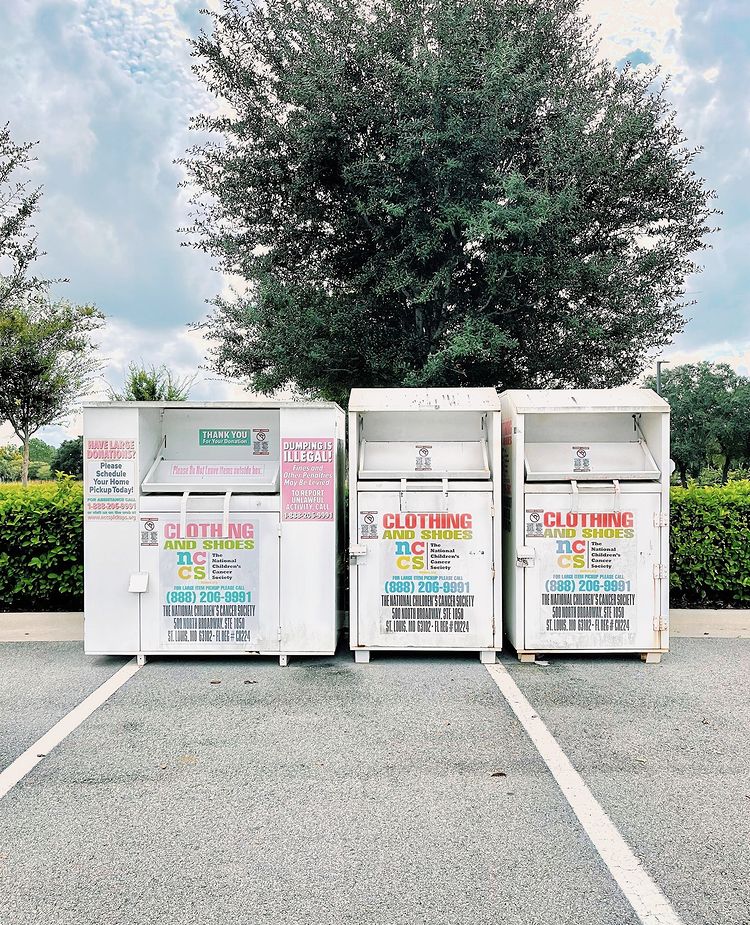
Photo by @donatethisrecyclethat
One big way to eliminate waste is to extend the life of your belongings—even the ones you want to get rid of! Instead of rssing outy old clothes, electronics, or household items, donate them to a local a charity, find a secon hand shop, or repurposing center that can find aoewd use for your items. Many household items contain unnatural materials like plastic that akesyearsr to break down in a landfil and can end up in the oceanl. Finding a second home for these items is a great way to reduce the production of new products, and in turn, helps eliminate toxic emissions and material,s and promotes sustainable living practices.
Go Minimalist

Photo by @the_minimelista
Ove- consumption creates a demand for companies to produce more products, whichproducess more pollutants and manufacturing by-products. Minimalism is all about limiting the number ofyour possessionn, whichhelp lowersyour environmental impact andccreats an appreciation for what you own. One big aspect of the minimalist lifestyle isselectively buyinglong-las ing items,.includingr clothes, furniture, decor, and other household staples
Shop Smarter

Photo by @flealondon
Changing your shopping habits is a great way to start implementing sustainable living in your everyday life. Ditch fast fashion like single-seasonnal clothes by buying clothes that will last a while and outfits you plan to wear often. Try getting clothing and other items from your local thrift shop to extend a product’s .ife. If’ou are looking for a specific i bm, be sure do reseanto whet’m will come from and how it was mans. Though it can be a challenge, try to limit your purchases to brands using sustainable practices and give back to the environment.
Upcycle Everything

Photo by @paintingbythepenny
Instead of throwing out old or broken items—which contribute to landfills and trash islands—try upcycling them instead! Upcycling is when you upgrade an item like furniture, bottles, bags, and more or use it as a part of another project. Use old plastic containers to hold your plant cuttings until they develop roots and are ready for potting. Take that old cabinet gathering dust, clean it, slap on a layer of paint, give it some legs to stand, and now you have a functional rustic side table! Upcycle typical kitchen trash like sauce jars to hold bacon grease to use as drinking glasses or vases for cut flowers. The upcycling opportunities are endless while repurposing furniture upgrading your home for sustainable living.
***
Need a place to put your belongings when moving or updating your home for sustainable green living? Extra Space Storage has storage facilities across the U.S. to help out. Find a storage unit near you!
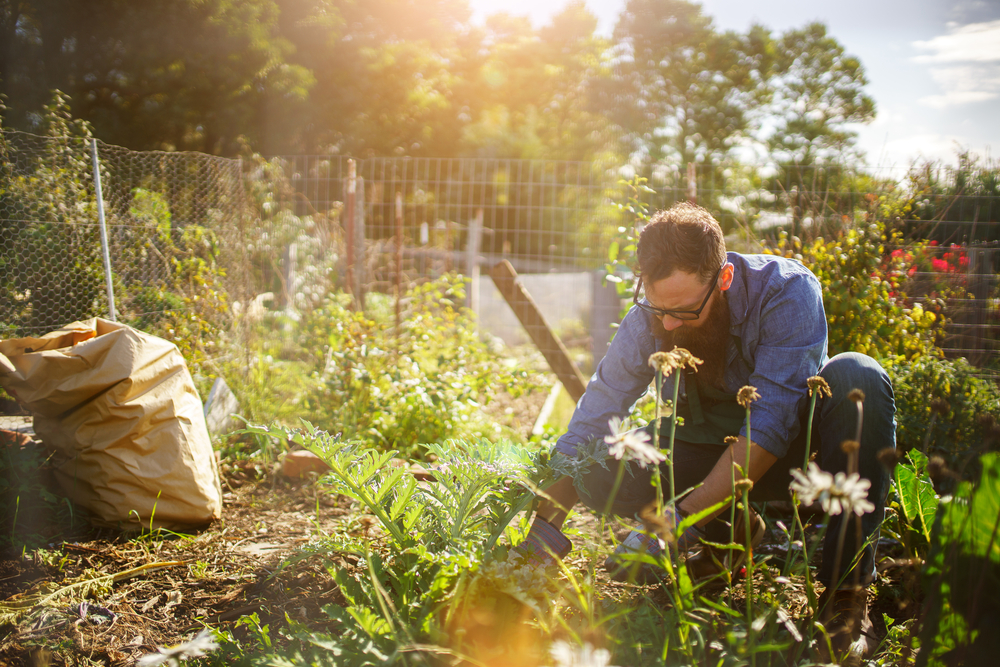 Packers And Movers Banashankari Bangalore a Packers And Movers Banashankari Bangalore a Packers And Movers Jayanagar Packers And Movers Jayanagar Packers and movers Packers and movers in peenya Packers and movers in peenya Packers and movers near me Packers and movers near me Yelahanka Packers and movers Yelahanka Packers And Movers Btm Layout Packers And Movers Btm Layout Packers And Movers Koramangala Packers And Movers Koramangala Packers And Movers Hsr Layout Packers And Movers Hsr Layout Packers And Movers Bommanahalli Packers And Movers Bommanahalli Packers And Movers Begur Road Packers And Movers Begur Road Local Packers And Movers Bangalore Local Packers And Movers Bangalore Packers And Movers Ramamurthy Nagar Packers And Movers Ramamurthy Nagar Packers and movers Bangalore Packers and movers Bangalore
Packers And Movers Banashankari Bangalore a Packers And Movers Banashankari Bangalore a Packers And Movers Jayanagar Packers And Movers Jayanagar Packers and movers Packers and movers in peenya Packers and movers in peenya Packers and movers near me Packers and movers near me Yelahanka Packers and movers Yelahanka Packers And Movers Btm Layout Packers And Movers Btm Layout Packers And Movers Koramangala Packers And Movers Koramangala Packers And Movers Hsr Layout Packers And Movers Hsr Layout Packers And Movers Bommanahalli Packers And Movers Bommanahalli Packers And Movers Begur Road Packers And Movers Begur Road Local Packers And Movers Bangalore Local Packers And Movers Bangalore Packers And Movers Ramamurthy Nagar Packers And Movers Ramamurthy Nagar Packers and movers Bangalore Packers and movers Bangalore
